This article explores the most common types of legal cases in the U.S. and offers expert guidance on finding qualified attorneys in Chula Vista, California.
Understanding Personal Injury Cases
Personal injury cases are a prevalent area of law in the U.S., often involving accidents or negligence that result in physical or emotional harm. Such cases can include car accidents, slip and falls, and workplace injuries. To navigate these complex cases, potential plaintiffs should seek attorneys who specialize in personal injury law. Look for lawyers with a proven track record, positive client reviews, and experience in handling similar cases. Online platforms like Avvo and Martindale-Hubbell can help you find qualified attorneys in Chula Vista.
Medical Malpractice: What You Need to Know
Medical malpractice occurs when healthcare professionals fail to meet the accepted standard of care, leading to patient harm. These cases can be intricate, requiring attorneys who understand medical terminology and procedures. When searching for a medical malpractice attorney, consider their experience in the field, success rates, and whether they have access to medical experts to strengthen your case. Recommendations from trusted healthcare providers can also be beneficial.
Breach of Contract: Identifying Legal Recourse
Breach of contract cases often arise in both business and personal agreements. Whether it involves services not rendered or products not delivered, understanding your legal standing is essential. Look for attorneys with expertise in contract law and a history of successfully resolving similar disputes. Online legal directories and local bar associations can provide insights into reputable lawyers in your area.
Navigating Property Disputes Effectively
Property disputes can stem from issues such as boundary disagreements or ownership claims. When facing such challenges, it’s important to find a real estate attorney who understands local property laws. Seek out attorneys with specialized knowledge in real estate transactions and litigation. Client testimonials and case outcomes can help gauge their effectiveness.
Landlord-Tenant Disputes: Legal Protections and Rights
In urban settings, landlord-tenant disputes are common. Understanding tenant rights and landlord obligations is crucial for individuals seeking legal assistance. When looking for an attorney, ensure they have experience in housing law and are familiar with local regulations. Community legal aid organizations can also provide resources and referrals to qualified attorneys.
Defamation Cases: Libel and Slander Explained
Defamation, whether through libel or slander, can significantly impact an individual’s reputation. If you believe you have a case, seek an attorney who specializes in defamation law. Look for lawyers with a strong track record in media law and free speech issues. It’s also beneficial to find attorneys who are adept at negotiating settlements, as many defamation cases can be resolved outside of court.
Employment Disputes: Know Your Rights
Employment disputes can involve wrongful termination, discrimination, or wage issues. Identifying experienced employment lawyers is crucial for protecting your rights in the workplace. When searching for legal representation, consider attorneys who are members of employment law associations and have a history of successful outcomes in similar cases. Online reviews and client feedback can provide valuable insights into their effectiveness.
Product Liability Claims: Holding Manufacturers Accountable
Product liability cases arise when consumers are harmed by defective products. Understanding how to pursue these claims can assist individuals in finding qualified attorneys. Look for lawyers who specialize in consumer protection and have experience with product liability cases. Checking their credentials and past case results can help ensure you choose a knowledgeable attorney.
Wrongful Death: Seeking Justice for Loved Ones
Wrongful death cases are sensitive and complex, often requiring a compassionate yet assertive legal approach. Families seeking representation should look for attorneys who have successfully handled wrongful death cases and understand the emotional nuances involved. Recommendations from support groups and local bar associations can help in finding suitable legal counsel.
Class Action Lawsuits: Joining Forces for Justice
Class action lawsuits allow groups of individuals to collectively seek justice against a common defendant. Understanding the process is crucial for those considering this route. When looking for an attorney, seek those with experience in managing class actions and a history of successful outcomes. Legal associations and online platforms can provide directories of qualified lawyers.
Criminal Defense: Understanding Assault and Battery Charges
Assault and battery are serious criminal charges that require expert legal representation. Knowing how to choose a criminal defense attorney can significantly impact the outcome of a case. Look for attorneys with a strong background in criminal law and a proven track record in defending similar charges. Client testimonials and case results can provide insight into their effectiveness.
Family Law: Divorce and Child Custody Matters
Family law encompasses various issues, including divorce and child custody. Understanding these matters is essential for individuals seeking legal guidance in family disputes. When searching for a family law attorney, consider their experience in mediation and litigation, as well as their approach to resolving conflicts amicably. Client reviews and referrals can help identify the best candidates.
Immigration Cases: Navigating Complex Legal Waters
Immigration law can be intricate and challenging. Knowing how to find a qualified immigration attorney is crucial for individuals facing these legal issues. Look for attorneys with a focus on immigration law who are familiar with current policies and procedures. Recommendations from community organizations and immigrant support groups can also be helpful in identifying trustworthy legal counsel.

Understanding Personal Injury Cases
Personal injury cases are among the most common legal issues faced in the United States. They typically arise from incidents where an individual suffers harm due to another party’s negligence, recklessness, or intentional actions. These cases can include a variety of situations, such as automobile accidents, slip and fall incidents, and workplace injuries. Understanding the intricacies of personal injury law is essential for anyone considering filing a claim.
In the realm of personal injury, potential plaintiffs must first establish that the defendant had a duty of care towards them, breached that duty, and caused damages as a result. This can often involve gathering substantial evidence, including medical records, witness testimonies, and accident reports. For individuals navigating these complex waters, seeking legal representation from an experienced attorney is crucial.
When searching for a personal injury lawyer, especially in bustling cities like New York City, Los Angeles, or Chicago, individuals should consider several factors:
- Experience: Look for attorneys who specialize in personal injury law and have a proven track record of successful cases.
- Reputation: Research online reviews and testimonials to gauge the lawyer’s reputation among former clients.
- Communication: Choose a lawyer who communicates clearly and promptly, ensuring you are informed throughout the process.
- Fees: Understand the fee structure, including contingency fees, which are common in personal injury cases. This means the lawyer only gets paid if you win your case.
Additionally, individuals should be wary of red flags, such as lawyers who guarantee specific outcomes or pressure clients into signing contracts without providing adequate explanations. It is essential to feel comfortable and confident in your attorney’s abilities.
In summary, understanding personal injury cases and knowing how to find a qualified attorney can significantly impact the outcome of your claim. With the right legal representation, individuals can navigate the complexities of personal injury law and seek the compensation they deserve.

Medical Malpractice: What You Need to Know
Medical malpractice is a complex area of law that arises when healthcare professionals, such as doctors, nurses, or hospitals, fail to provide the standard of care expected in their field, resulting in harm to patients. Understanding the intricacies of these cases is vital for anyone who believes they have been a victim of medical negligence.
In the United States, medical malpractice cases can encompass a wide range of issues, including misdiagnosis, surgical errors, medication mistakes, and inadequate follow-up care. Each of these scenarios can lead to serious consequences for patients, including prolonged illness, additional medical expenses, or even death. Therefore, it is critical for individuals to know their rights and the steps they should take if they suspect malpractice.
When pursuing a medical malpractice claim, the first step is to seek a qualified attorney who specializes in this field. Here are some key considerations to keep in mind:
- Experience and Specialization: Look for attorneys who have a proven track record in handling medical malpractice cases. Their experience will be invaluable in navigating the complexities of these claims.
- Credentials: Verify the attorney’s credentials, including their education, bar association memberships, and any additional certifications in medical malpractice law.
- Client Reviews: Read reviews and testimonials from previous clients to gauge their satisfaction and the attorney’s effectiveness in representing their interests.
- Consultation: Many attorneys offer free consultations. Use this opportunity to discuss your case and assess whether the attorney is a good fit for your needs.
- Fee Structure: Understand the attorney’s fee structure. Most medical malpractice attorneys work on a contingency basis, meaning they only get paid if you win your case. Make sure to clarify any additional costs that may arise.
Additionally, it is essential to be aware of the statute of limitations for filing a medical malpractice claim, which varies by state. In many cases, you may have only a limited time to initiate legal action after the incident occurs. Therefore, acting quickly is crucial.
Another important aspect to consider is the requirement of expert testimony in most medical malpractice cases. This means that you will likely need to provide evidence from a qualified medical professional who can attest to the standard of care that should have been provided and how the healthcare provider deviated from that standard. An experienced attorney will have the resources to help you secure the necessary expert witnesses.
In summary, understanding the nuances of medical malpractice and knowing how to find a qualified attorney can significantly impact the outcome of your case. By focusing on experience, credentials, and client satisfaction, you can better position yourself to seek justice for any harm suffered due to medical negligence.

Breach of Contract: Identifying Legal Recourse
Breach of contract cases are prevalent in both business and personal agreements, often leading to significant disputes and financial losses. A contract, by definition, is a legally binding agreement between two or more parties, and a breach occurs when one party fails to fulfill their obligations as stipulated in the contract. Understanding the legal implications of a breach is essential for individuals seeking to protect their rights and secure appropriate remedies.
In the realm of business, breaches can occur due to various reasons, including non-payment for services rendered, failure to deliver goods, or not adhering to agreed timelines. Personal contracts, such as rental agreements or service contracts, can also be breached, causing distress and financial strain. When faced with a breach, it is crucial to assess the situation and determine the best course of action.
To navigate a breach of contract effectively, individuals should consider the following steps:
- Review the Contract: Carefully read the contract to understand the specific terms and obligations of each party. This will help identify the nature of the breach.
- Document Everything: Keep a detailed record of all communications and actions related to the breach. This documentation will be invaluable if legal action is necessary.
- Seek Legal Counsel: Consulting with an experienced attorney specializing in contract law is vital. An attorney can provide guidance on the best legal recourse available, whether it be negotiation, mediation, or litigation.
When selecting a lawyer to handle a breach of contract case, individuals should look for specific credentials and qualities:
- Experience: Choose an attorney with a proven track record in handling breach of contract cases. Their experience can significantly impact the outcome of your case.
- Specialization: Ensure the attorney specializes in contract law. This specialization indicates a deeper understanding of the nuances involved in such cases.
- Client Reviews: Look for testimonials and reviews from previous clients. Positive feedback can provide insight into the attorney’s effectiveness and professionalism.
- Initial Consultation: Many attorneys offer free initial consultations. Use this opportunity to gauge their approach and determine if they are a good fit for your needs.
Additionally, be aware of red flags when hiring an attorney:
- Lack of Communication: If an attorney is unresponsive during initial consultations, it may indicate future communication issues.
- Pressure Tactics: Beware of attorneys who pressure you into making hasty decisions. A reputable lawyer will provide you with the necessary information to make informed choices.
- Unclear Fee Structures: Ensure that the attorney provides a clear understanding of their fees and billing practices to avoid unexpected costs.
In metropolitan areas like New York City, Los Angeles, and Chicago, finding a qualified attorney can be challenging due to the high volume of legal professionals. Utilize online platforms such as Avvo, FindLaw, and LegalMatch to search for attorneys based on their specialties and client reviews. Additionally, local bar associations can provide referrals and resources to assist in your search.
Ultimately, understanding the intricacies of breach of contract cases and knowing how to find the right legal representation can significantly impact the resolution of disputes. With the right attorney by your side, you can pursue the necessary legal recourse to protect your interests and seek justice.

Navigating Property Disputes Effectively
Property disputes are a common issue faced by many individuals and businesses alike. These disputes can arise from a variety of factors, including boundary disagreements, ownership claims, and easement issues. Understanding how to navigate these complex situations is essential for anyone involved in real estate transactions or property ownership.
When dealing with property disputes, it is vital to first identify the specific nature of the conflict. For instance, boundary disputes often arise from unclear property lines, which can lead to disagreements over land use. Ownership disputes may occur when multiple parties claim rights to a property, often necessitating a thorough examination of deeds and titles. Easement disputes involve the rights of one party to use a portion of another’s property, which can lead to significant legal challenges.
To effectively navigate property disputes, individuals should consider the following steps:
- Document Everything: Keep detailed records of all communications, agreements, and relevant documents related to the property in question. This documentation will be crucial in establishing your case.
- Consult a Real Estate Attorney: Finding an experienced real estate attorney is essential. Look for attorneys who specialize in property law and have a track record of successfully handling similar cases.
- Understand Local Laws: Property laws can vary significantly from one jurisdiction to another. Familiarize yourself with local laws and regulations that may affect your dispute.
- Consider Mediation: Before resorting to litigation, consider mediation as a viable option. Mediation can often lead to a quicker and more amicable resolution.
- Prepare for Litigation: If mediation fails, be prepared for the possibility of litigation. Ensure your attorney is ready to represent your interests in court.
When searching for a qualified real estate attorney, utilize various platforms such as legal directories, state bar associations, and referral services. Look for attorneys with positive reviews, strong credentials, and a proven history of handling property disputes. Additionally, consider scheduling initial consultations to gauge their expertise and approach to your specific situation.
Be cautious of red flags when selecting an attorney. Avoid those who make unrealistic promises or seem more interested in settling quickly than achieving the best outcome for your case. Trust your instincts and choose someone who communicates clearly and prioritizes your needs.
In summary, navigating property disputes requires a proactive approach, thorough documentation, and the right legal representation. By understanding the nature of your dispute and seeking qualified legal counsel, you can effectively protect your rights and interests in any property-related matter.
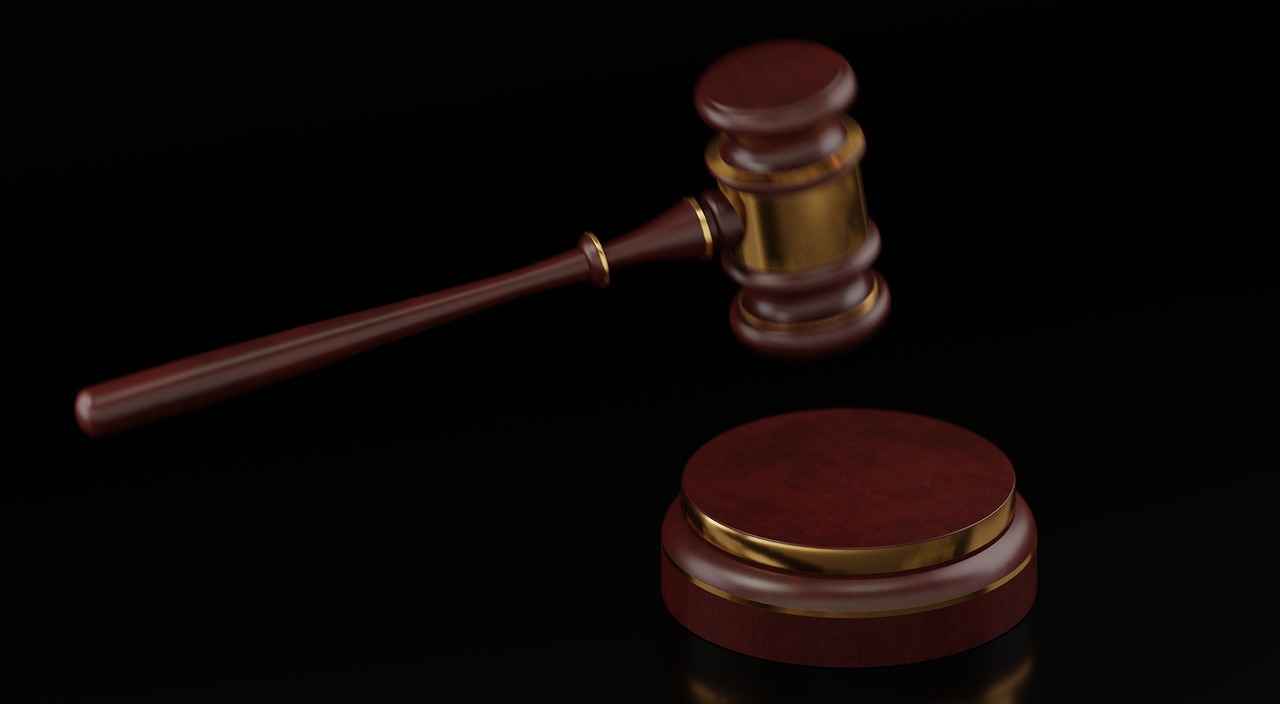
Landlord-Tenant Disputes: Legal Protections and Rights
Landlord-tenant disputes are common occurrences in urban environments, often arising from misunderstandings or miscommunications between landlords and tenants. In cities like Chula Vista, understanding the rights of tenants and the obligations of landlords is crucial for both parties to navigate these conflicts effectively. The legal landscape governing these relationships is shaped by a combination of federal, state, and local laws, which can vary significantly.
For tenants, it is essential to be aware of their rights concerning habitability, privacy, and the return of security deposits. For instance, tenants have the right to live in a property that is safe and free from significant health hazards. If a landlord fails to address serious issues such as plumbing leaks or electrical hazards, tenants may have grounds to take legal action. Additionally, tenants should be informed about their rights regarding eviction notices and the process that landlords must follow to evict a tenant legally.
On the other hand, landlords also have specific rights and responsibilities. They are entitled to receive rent on time and have the right to enter the property for necessary repairs, provided they give appropriate notice. Understanding these obligations can help landlords avoid disputes that may arise from perceived negligence or mismanagement.
| Common Issues in Landlord-Tenant Disputes | Tenant Rights | Landlord Obligations |
|---|---|---|
| Late Rent Payments | Right to a grace period | Right to collect rent on time |
| Eviction | Right to contest eviction | Must follow legal eviction process |
| Property Maintenance | Right to a habitable living environment | Must maintain property and make repairs |
To resolve disputes, both landlords and tenants can seek legal assistance. When searching for a qualified attorney in Chula Vista, individuals should consider the following:
- Experience: Look for attorneys who specialize in landlord-tenant law and have a proven track record in handling similar cases.
- Reputation: Research reviews and testimonials from previous clients to gauge the attorney’s effectiveness and reliability.
- Consultation: Many attorneys offer free initial consultations, which can provide valuable insights into your case without financial commitment.
- Credentials: Verify the attorney’s credentials, including their education and any relevant certifications in real estate or landlord-tenant law.
Additionally, potential clients should be wary of red flags such as attorneys who make unrealistic promises, pressure clients into quick decisions, or lack transparency about their fees. It’s also wise to ensure that the attorney is in good standing with the state bar association, as this can indicate their professionalism and adherence to ethical standards.
In conclusion, navigating landlord-tenant disputes requires a clear understanding of legal rights and responsibilities. By seeking qualified legal assistance and being informed about local laws, both landlords and tenants can work towards amicable resolutions and avoid prolonged conflicts.
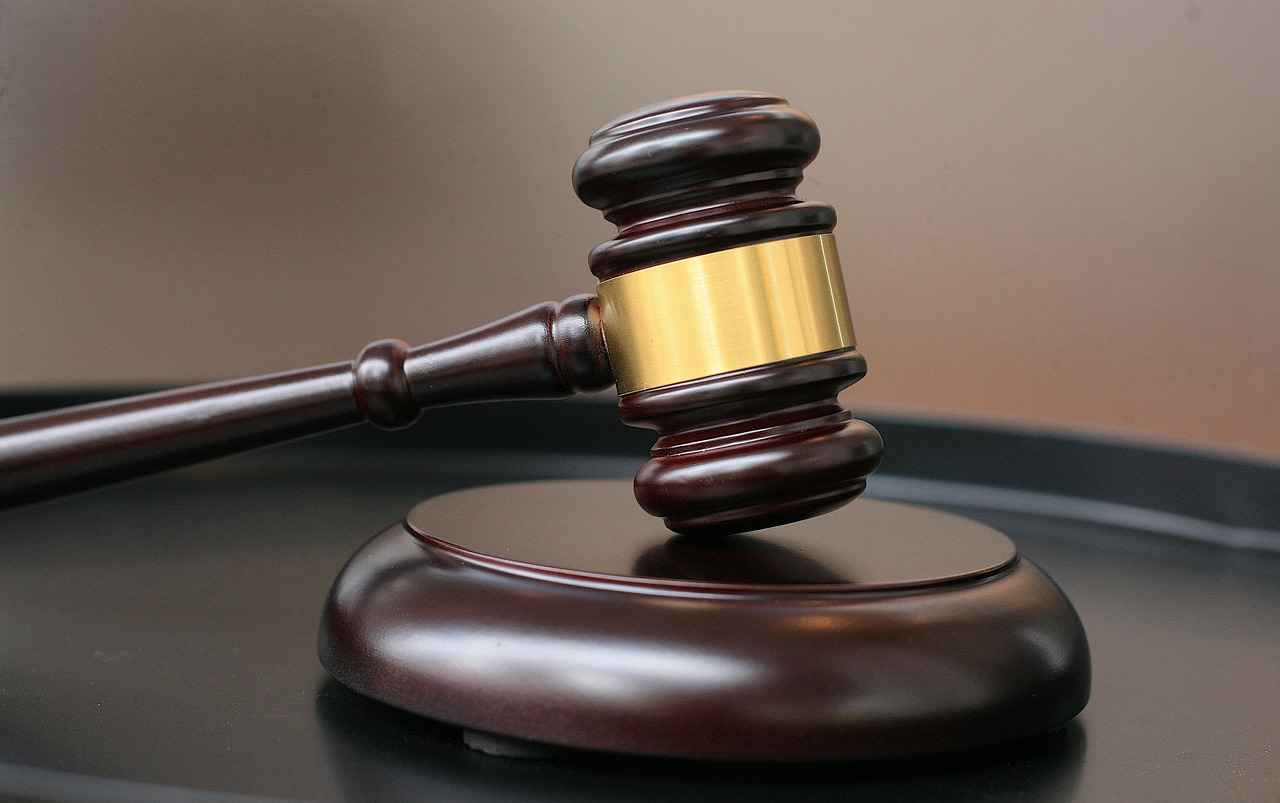
Defamation Cases: Libel and Slander Explained
Defamation is a serious legal issue that can profoundly affect an individual’s or a business’s reputation. It encompasses two primary forms: libel, which refers to defamation in written form, and slander, which pertains to spoken statements. Understanding the intricacies of these cases is essential for anyone considering legal action or needing to defend against defamation claims.
In today’s digital age, where information spreads rapidly through social media and online platforms, the potential for defamation is higher than ever. A single false statement can lead to significant damage, impacting personal relationships, professional opportunities, and mental well-being. Therefore, identifying qualified legal representation is crucial for navigating these complex cases.
When seeking an attorney who specializes in defamation cases, consider the following factors:
- Experience in Defamation Law: Look for attorneys with a proven track record in handling defamation cases specifically. Their familiarity with the nuances of libel and slander will be invaluable.
- Reputation and Reviews: Research potential lawyers online to find reviews from previous clients. A strong reputation can indicate reliability and effectiveness.
- Understanding of Media Law: Given that many defamation cases involve media outlets, an attorney with expertise in media law can provide essential insights and strategies.
- Consultation Availability: Many attorneys offer free consultations. Use this opportunity to discuss your case and gauge their understanding and approach.
Additionally, be aware of red flags when hiring a defamation attorney:
- Vague Promises: Be cautious of attorneys who guarantee outcomes or make unrealistic promises. Defamation cases can be unpredictable.
- Lack of Communication: Effective communication is vital in legal matters. If an attorney is unresponsive during initial consultations, this may indicate future difficulties.
- High Pressure Tactics: Avoid lawyers who pressure you into signing contracts or making quick decisions without giving you time to think.
In conclusion, understanding the complexities of defamation law is crucial for anyone facing potential libel or slander claims. By carefully selecting a qualified attorney, you can better protect your reputation and navigate the legal landscape effectively.

Employment Disputes: Know Your Rights
Employment disputes can encompass a variety of issues, including wrongful termination, discrimination, and wage disputes. Understanding your rights as an employee is crucial for navigating these complex situations. In the competitive job market of cities like Chula Vista, California, and beyond, having access to experienced employment lawyers can make all the difference in protecting your rights and ensuring fair treatment in the workplace.
When faced with an employment dispute, the first step is to recognize the specific nature of your issue. Wrongful termination occurs when an employee is fired for illegal reasons, such as discrimination based on race, gender, or age, or in retaliation for whistleblowing. If you suspect that you have been wrongfully terminated, it is essential to gather documentation, including emails, performance reviews, and any relevant company policies that may support your case.
Discrimination in the workplace can take many forms, including harassment, unequal pay, or lack of promotion opportunities based on protected characteristics. The Equal Employment Opportunity Commission (EEOC) enforces federal laws against workplace discrimination. Filing a complaint with the EEOC can be an essential step in addressing these issues. Consulting with a qualified employment lawyer can help you navigate this process effectively.
Wage disputes often arise over unpaid overtime, misclassification of employees, or discrepancies in pay. The Fair Labor Standards Act (FLSA) outlines the rights of employees concerning minimum wage and overtime pay. If you believe your employer has violated these laws, documenting your hours worked and pay received is crucial. An experienced attorney can assist you in filing a claim to recover lost wages.
To find the right employment lawyer, consider the following steps:
- Research and Referrals: Start by asking friends, family, or colleagues for recommendations. Online platforms such as Avvo and FindLaw provide listings of attorneys with client reviews.
- Check Credentials: Look for attorneys who specialize in employment law and have a proven track record in similar cases. Verify their credentials through state bar associations.
- Consultation: Many lawyers offer free initial consultations. Use this opportunity to discuss your case and gauge their expertise.
- Red Flags: Be cautious of lawyers who guarantee outcomes or pressure you to sign contracts quickly. Trustworthy attorneys will provide clear, honest assessments of your case.
In conclusion, understanding your rights in employment disputes is vital for protecting yourself in the workplace. By identifying experienced employment lawyers and following the appropriate steps, you can ensure that your rights are upheld and that you receive fair treatment under the law.
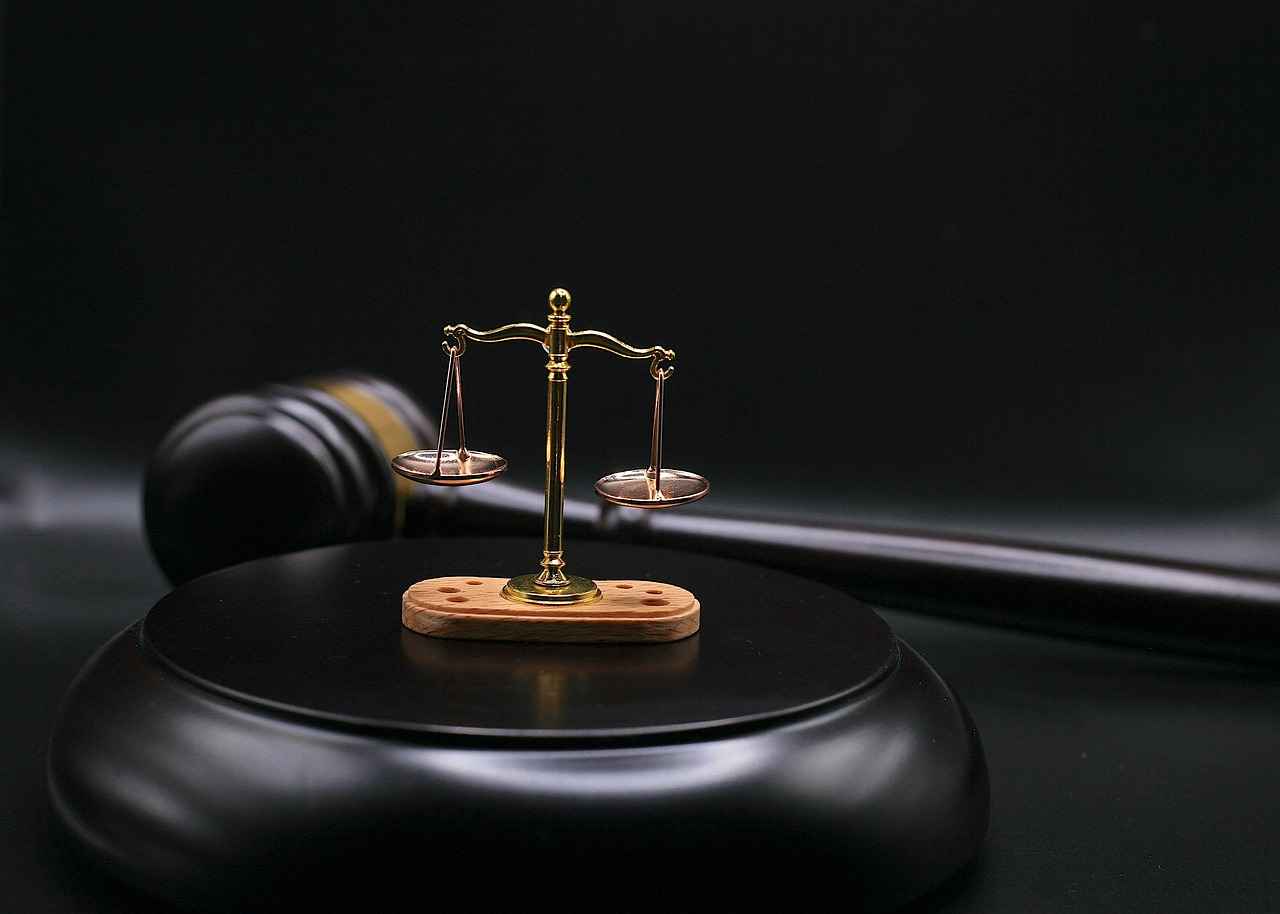
Product Liability Claims: Holding Manufacturers Accountable
Product liability claims arise when consumers are harmed by defective products. These cases can encompass a wide range of issues, including design defects, manufacturing defects, and failure to provide adequate warnings or instructions. Understanding how to pursue these claims can assist individuals in finding qualified attorneys who specialize in this area of law.
When a consumer is injured by a product, they may have the right to seek compensation from the manufacturer, distributor, or retailer. To successfully navigate a product liability claim, it’s crucial to collect evidence that demonstrates how the product was defective and how it caused harm. This may include medical records, photographs of the product, and any relevant documentation of the incident.
Identifying Qualified Attorneys
Finding a qualified attorney who specializes in product liability is essential for a successful case. Here are several methods to identify the right legal professional:
- Referrals: Ask friends, family, or colleagues if they can recommend a personal injury attorney with experience in product liability cases.
- Online Research: Utilize legal directories and platforms such as Avvo, FindLaw, or Martindale-Hubbell to find attorneys with specific expertise in product liability.
- Bar Association Resources: Contact your local or state bar association for a list of attorneys who specialize in personal injury and product liability law.
Key Credentials to Look For
When evaluating potential attorneys, consider the following credentials:
- Experience: Look for attorneys who have a proven track record of handling product liability cases successfully.
- Specialization: Ensure the attorney specializes in personal injury law with a focus on product liability claims.
- Trial Experience: An attorney with trial experience may be more effective in negotiating settlements or representing you in court.
Red Flags to Avoid
While searching for a product liability attorney, be mindful of potential red flags:
- Lack of Transparency: If an attorney is unwilling to discuss their fees or experience, it may be a sign to look elsewhere.
- No References: A reputable attorney should be able to provide references or testimonials from past clients.
- Pressure Tactics: Be wary of attorneys who pressure you to sign a contract quickly without fully explaining the terms.
Understanding the Legal Process
The legal process for product liability claims can be complex. Typically, it involves several steps:
- Initial Consultation: Meet with your attorney to discuss the details of your case and evaluate your options.
- Investigation: Your attorney will conduct a thorough investigation, gathering evidence and expert opinions as needed.
- Filing a Claim: If there’s sufficient evidence, your attorney will file a claim against the responsible parties.
- Negotiation: Many cases are settled before going to trial through negotiations with the opposing party.
- Trial: If a settlement cannot be reached, your case may proceed to trial, where your attorney will present your case before a judge or jury.
In major metropolitan areas like New York City, Los Angeles, and Chicago, the competition among attorneys can be fierce. Therefore, it’s essential to conduct thorough research and choose someone who not only has the right qualifications but also aligns with your specific needs and comfort level. By following these guidelines, individuals can effectively navigate the complexities of product liability claims and find the right legal representation to hold manufacturers accountable for their defective products.
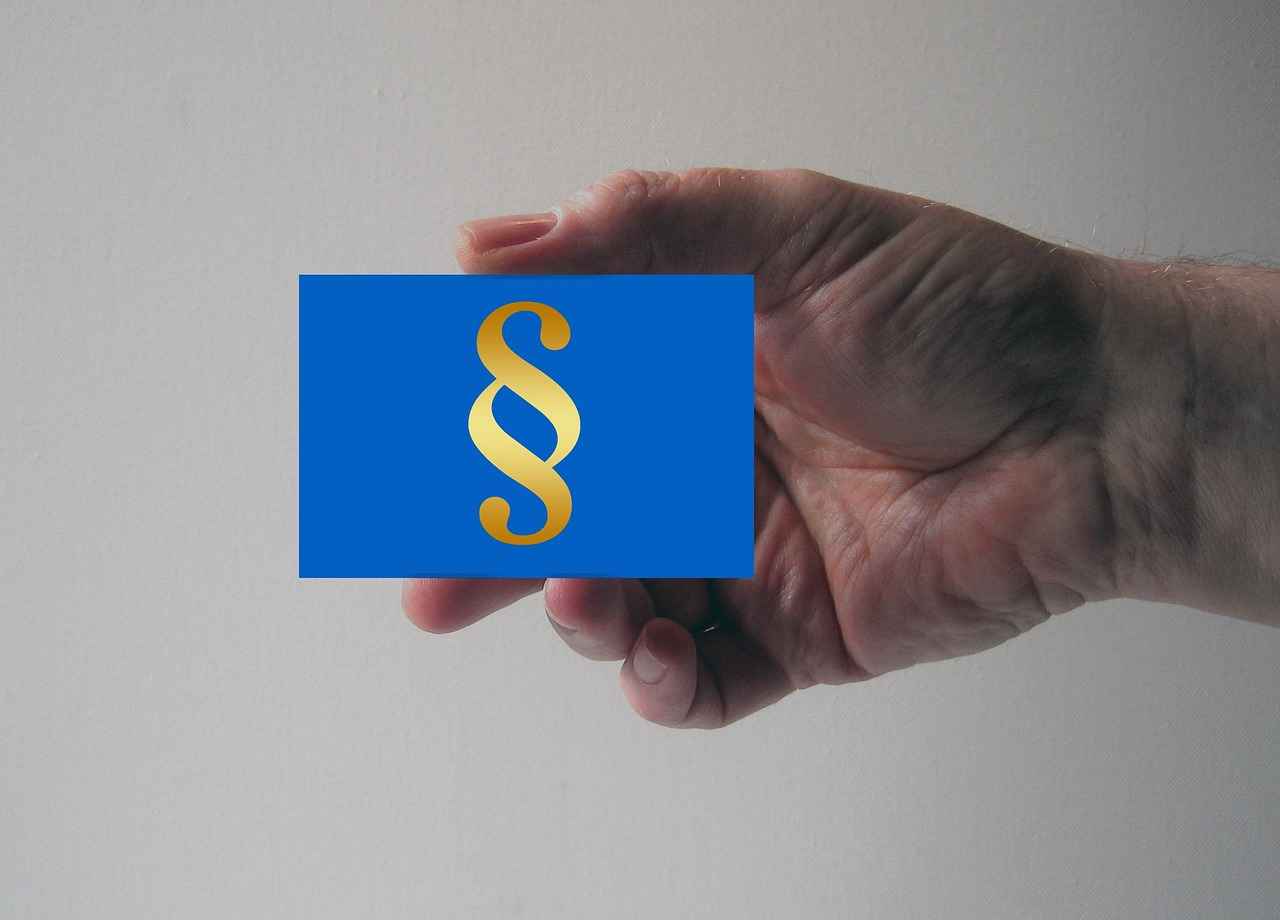
Wrongful Death: Seeking Justice for Loved Ones
Wrongful death cases are among the most emotionally charged legal matters one can encounter. When a loved one dies due to the negligence or misconduct of another party, it creates a profound sense of loss and injustice. Families left behind often grapple with overwhelming grief while simultaneously needing to navigate the complexities of the legal system. Understanding how to approach these sensitive cases is essential for achieving justice and obtaining the compensation necessary to cover losses incurred.
The first step in addressing a wrongful death claim is to understand the legal definition. A wrongful death occurs when a person dies due to the negligence, intentional act, or wrongful conduct of another individual or entity. This can include fatal accidents, medical malpractice, or even criminal acts. In Chula Vista, as well as throughout California, the law allows the deceased’s family members to seek compensation for various damages, including funeral expenses, loss of companionship, and emotional distress.
Finding the right attorney to handle a wrongful death case is crucial. Here are some practical steps to ensure you choose a qualified legal professional:
- Look for Specialization: Seek attorneys who specialize in wrongful death cases. Their experience in this specific area will provide valuable insights into navigating the complexities of your case.
- Check Credentials: Verify the attorney’s qualifications, including their education, licenses, and any relevant certifications. Membership in professional organizations, such as the American Association for Justice, can also indicate a commitment to the field.
- Read Reviews: Online reviews and testimonials can provide insights into an attorney’s reputation. Look for patterns in feedback regarding their communication skills, case outcomes, and overall client satisfaction.
- Schedule Consultations: Most attorneys offer free initial consultations. Use this opportunity to ask about their experience with wrongful death cases and their approach to handling such matters.
- Discuss Fees: Understand the attorney’s fee structure. Many wrongful death attorneys work on a contingency basis, meaning they only get paid if you win the case. Ensure you have a clear understanding of any costs involved.
It’s also important to be aware of red flags when hiring an attorney. Avoid those who promise guaranteed outcomes, as no attorney can predict the results of a legal case. Be cautious of lawyers who are unwilling to provide references or those who seem more focused on their fees than your case. A trustworthy attorney will prioritize your needs and show genuine empathy for your situation.
In wrongful death cases, time is of the essence. California has a statute of limitations that typically allows families two years from the date of death to file a claim. Delaying action can jeopardize your ability to seek justice and compensation. Therefore, it’s crucial to act promptly and engage legal representation as soon as possible.
In conclusion, while the emotional toll of losing a loved one can be overwhelming, understanding the legal pathways available can empower families to seek justice. By taking the time to find a qualified attorney, families can ensure that their loved one’s memory is honored and that they receive the compensation necessary to cope with their loss.
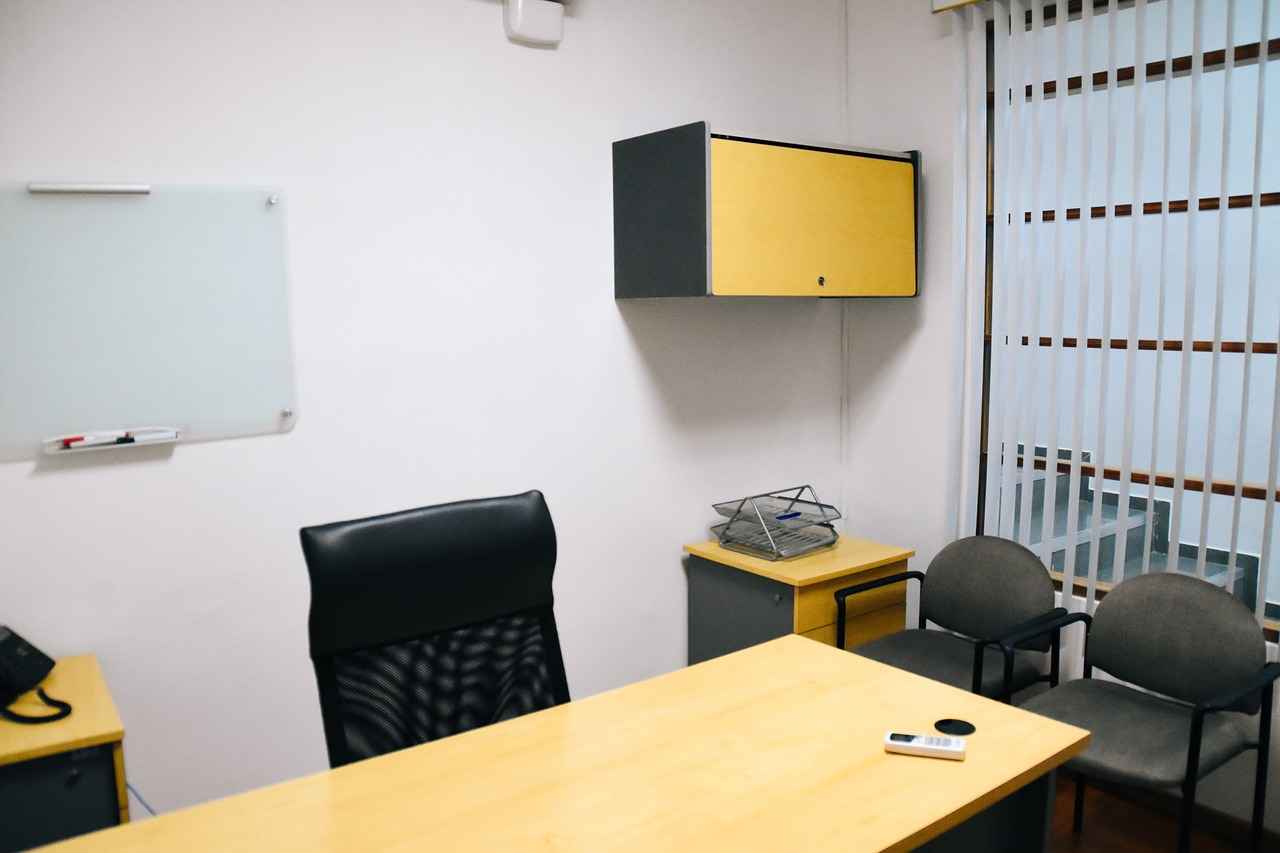
Class Action Lawsuits: Joining Forces for Justice
Class action lawsuits serve as a powerful tool for individuals who have suffered similar grievances, allowing them to band together and seek justice against larger entities, such as corporations or government agencies. This legal mechanism not only amplifies their voices but also reduces the financial burden of litigation for each participant. Understanding the intricacies of the class action process is essential for anyone considering this route.
In a typical class action lawsuit, a representative plaintiff, known as the lead plaintiff, files a claim on behalf of a larger group, or “class,” of individuals who have been affected by the same issue. This could range from defective products to widespread corporate fraud. The class must meet specific criteria, including commonality, typicality, and adequacy, which ensures that the claims of the lead plaintiff are representative of the class as a whole.
One of the key advantages of class action lawsuits is the ability to pool resources. Legal fees and costs can quickly escalate in individual lawsuits, but in a class action, these expenses are shared among all members of the class. This not only makes it more financially feasible for individuals to pursue their claims but also encourages participation from those who might otherwise feel intimidated by the prospect of litigation.
However, navigating the class action landscape can be complex. Here are some essential steps to consider when seeking an attorney experienced in handling such cases:
- Research Law Firms: Look for firms that specialize in class action lawsuits. Websites such as Avvo and FindLaw provide directories of attorneys and law firms, including reviews and ratings from previous clients.
- Check Credentials: Ensure that the attorney has a proven track record in class action cases. Look for their experience, number of cases handled, and success rates. Membership in professional organizations, such as the American Association for Justice, can also indicate a commitment to this area of law.
- Consultations: Many attorneys offer free consultations. Use this opportunity to ask about their experience with class action lawsuits, their approach to cases, and how they plan to communicate with you throughout the process.
- Understand Fee Structures: Class action attorneys often work on a contingency fee basis, meaning they only get paid if the case is successful. Ensure you fully understand the fee structure before signing any agreements.
- Seek Recommendations: Personal referrals can be invaluable. Ask friends, family, or colleagues if they know any reputable attorneys who specialize in class actions.
While class action lawsuits can be a powerful means of achieving justice, they also come with their own set of challenges. One significant issue is the potential for settlement offers. Often, defendants may propose settlements that may not fully compensate all class members, leading to dissatisfaction among some participants. It’s crucial to have an attorney who will advocate fiercely for the best possible outcome for the entire class.
Moreover, the process can be lengthy. Class actions often take years to resolve, and members may feel disconnected from the proceedings. An experienced attorney will help keep you informed and engaged throughout the process.
In summary, class action lawsuits represent a unique opportunity for individuals to collectively seek justice. By understanding the process and knowing how to find a qualified attorney, individuals can navigate this complex legal landscape more effectively. Whether you are in New York City, Los Angeles, Chicago, or any other major metropolitan area, taking the time to research and connect with the right legal professional can significantly impact the outcome of your case.

Criminal Defense: Understanding Assault and Battery Charges
When it comes to the legal system, assault and battery are among the most serious criminal charges one can face. These charges can have lasting implications on an individual’s life, including potential jail time, hefty fines, and a permanent criminal record. Therefore, understanding how to choose the right criminal defense attorney is paramount for anyone navigating these treacherous waters.
Assault typically refers to the threat of harm or an attempt to cause physical injury, while battery involves actual physical contact. The nuances between these charges can vary significantly from state to state, making it essential to find a lawyer who is well-versed in local laws. Here are some expert tips on how to find a qualified criminal defense attorney who can effectively represent you in an assault and battery case:
- Seek Specialization: Look for attorneys who specialize in criminal defense, particularly those with a focus on violent crimes. Their expertise will be invaluable in navigating the complexities of your case.
- Check Credentials: Verify the attorney’s credentials, including their education, bar admissions, and any specialized training in criminal law. Memberships in professional organizations, such as the National Association of Criminal Defense Lawyers (NACDL), can also indicate a commitment to staying updated on legal developments.
- Evaluate Experience: An attorney’s experience can make a significant difference in the outcome of your case. Look for someone who has handled cases similar to yours and has a track record of successful outcomes.
- Read Reviews: Online reviews and testimonials can provide insight into an attorney’s reputation and effectiveness. Websites like Avvo and Martindale-Hubbell offer ratings and reviews from clients and peers.
- Consult Multiple Attorneys: Don’t settle for the first attorney you meet. Schedule consultations with multiple lawyers to compare their strategies, communication styles, and fees. Many attorneys offer free initial consultations, allowing you to gauge their suitability without financial commitment.
- Discuss Fees Upfront: Understanding the fee structure is crucial. Some attorneys charge a flat fee, while others bill hourly. Make sure to clarify any additional costs that may arise during the legal process.
- Assess Communication: Choose an attorney who communicates clearly and promptly. You want someone who will keep you informed about the progress of your case and is available to answer your questions.
- Trust Your Instincts: Ultimately, choose an attorney you feel comfortable with and trust. The attorney-client relationship is vital for successful representation, especially in high-stakes cases like assault and battery.
In metropolitan areas like New York City, Los Angeles, and Chicago, the sheer volume of attorneys can be overwhelming. However, utilizing platforms like LegalMatch or FindLaw can help narrow down your options based on your specific needs. Always remember to look for local attorneys who understand the intricacies of your state’s laws.
In conclusion, choosing the right criminal defense attorney for assault and battery charges can significantly influence the outcome of your case. By following these guidelines, individuals can ensure they find a qualified and trustworthy legal professional who will advocate for their rights.

Family Law: Divorce and Child Custody Matters
Family law is a specialized area of legal practice that addresses various issues related to familial relationships. Among the most significant aspects of family law are divorce and child custody, which often lead to complex legal disputes. Understanding these matters is crucial for individuals navigating the emotional and legal challenges of family disputes.
Divorce can be a challenging process, both emotionally and financially. It involves the legal dissolution of a marriage and can include various issues such as division of assets, alimony, and child support. Each state has its own laws governing divorce, so it is essential to consult with a qualified attorney who is well-versed in local regulations. When seeking a divorce attorney, consider the following:
- Experience: Look for an attorney who specializes in family law and has a proven track record in divorce cases.
- Communication: Choose someone who communicates clearly and understands your needs and concerns.
- Reputation: Research online reviews and ask for referrals from friends or family who have gone through similar situations.
- Fees: Understand the fee structure upfront to avoid any surprises later.
Child custody is another critical aspect of family law, determining where children will live and how decisions will be made regarding their upbringing. Custody arrangements can be complex, involving physical custody (where the child lives) and legal custody (who makes decisions for the child). When dealing with custody issues, it is vital to:
- Prioritize the Child’s Best Interests: Courts generally favor arrangements that support the child’s well-being and stability.
- Consider Mediation: Many disputes can be resolved through mediation, which is often less adversarial than court proceedings.
- Document Everything: Keep detailed records of interactions and agreements regarding child custody to support your case.
Finding the right attorney for these matters can significantly impact the outcome of your case. In metropolitan areas like New York City, Los Angeles, and Chicago, the sheer number of legal professionals can be overwhelming. Here are some effective strategies to find the best family law attorney:
- Legal Directories: Use platforms like Avvo or FindLaw to search for family law attorneys in your area. These directories often include ratings and reviews.
- Consult Local Bar Associations: Many local bar associations offer referral services that can connect you with qualified attorneys.
- Attend Workshops or Seminars: Many law firms host informational events that can provide insight into the legal process and introduce you to potential attorneys.
In addition to these methods, be wary of red flags when selecting a family law attorney. Avoid attorneys who:
- Make Promises: Be cautious of any attorney who guarantees a specific outcome, as no one can predict the court’s decision.
- Pressure You: A good attorney will provide guidance but will not pressure you into making decisions.
- Are Unresponsive: If an attorney is slow to respond during the initial consultation, this may indicate future communication issues.
In summary, navigating family law issues such as divorce and child custody requires careful consideration and the right legal representation. By understanding the complexities of these matters and employing effective strategies to find a qualified attorney, individuals can better advocate for their rights and the well-being of their children.

Immigration Cases: Navigating Complex Legal Waters
Immigration law can be intricate and challenging. Individuals facing immigration issues often find themselves navigating a complex web of regulations and procedures. This is why knowing how to find a qualified immigration attorney is crucial. A skilled immigration lawyer can provide essential guidance and representation, ensuring that individuals understand their rights and options throughout the immigration process.
When searching for an immigration attorney, consider the following steps:
- Research Credentials: Look for attorneys who specialize in immigration law and have a proven track record. Check their educational background, certifications, and affiliations with professional organizations such as the American Immigration Lawyers Association (AILA).
- Read Reviews: Online reviews and testimonials can provide insights into an attorney’s reputation and effectiveness. Websites like Avvo, Martindale-Hubbell, and Google Reviews can be helpful in assessing client experiences.
- Consultation: Many attorneys offer free initial consultations. Use this opportunity to ask questions about their experience with cases similar to yours, their approach to handling immigration issues, and their fee structure.
- Assess Communication: A good attorney should communicate clearly and promptly. Pay attention to how they explain legal concepts and whether they take the time to address your concerns.
- Evaluate Fees: Understand the attorney’s fee structure, including whether they charge a flat fee or hourly rate. Be cautious of significantly low fees, as they may indicate a lack of experience or quality.
In metropolitan areas like New York City, Los Angeles, and Chicago, the competition among immigration attorneys can be fierce. Therefore, it’s essential to be thorough in your search. Consider asking for referrals from friends, family, or community organizations that focus on immigration issues. Networking within immigrant communities can also lead to valuable recommendations.
For those facing specific immigration challenges, such as asylum claims, family-based petitions, or deportation defense, it’s vital to find an attorney who has direct experience with those particular cases. This specialization can greatly enhance the chances of a favorable outcome.
Additionally, be wary of red flags. Avoid attorneys who make unrealistic promises or guarantee outcomes, as immigration cases can be unpredictable. Also, steer clear of those who do not provide clear information about their fees or who pressure you into making quick decisions.
In conclusion, finding the right immigration attorney can significantly impact your legal journey. By conducting thorough research, seeking referrals, and evaluating potential attorneys based on their credentials and communication style, you can navigate the complex waters of immigration law with greater confidence.
Frequently Asked Questions
- What types of cases do personal injury lawyers handle?
Personal injury lawyers typically handle cases involving accidents, negligence, and injuries caused by others. This can include car accidents, slip and fall incidents, and workplace injuries.
- How can I determine if I have a medical malpractice case?
If you believe that a healthcare professional failed to provide the standard of care, resulting in injury or harm, you may have a medical malpractice case. Consulting with a specialized attorney can help clarify your situation.
- What should I do if I am involved in a breach of contract dispute?
First, review the contract terms to understand your rights. Then, consider seeking legal advice to explore your options for resolution, whether through negotiation or litigation.
- How do I find a good real estate attorney for property disputes?
Look for attorneys with experience in real estate law and a proven track record in handling property disputes. Online reviews and referrals can also guide you in making your choice.
- What are my rights as a tenant in a landlord-tenant dispute?
As a tenant, you have rights regarding habitability, privacy, and fair treatment. Familiarizing yourself with local tenant laws can empower you in disputes with landlords.
- What constitutes defamation, and how can I pursue a case?
Defamation occurs when false statements harm your reputation. To pursue a case, you typically need to prove that the statements were made with negligence or malice. Consulting with a defamation attorney is essential.
- How can I protect my rights during an employment dispute?
Document all interactions and incidents related to your dispute. Seeking legal counsel can help you understand your rights and the best course of action to take.
- What should I know about product liability claims?
Product liability claims arise when a defective product causes harm. It’s important to gather evidence, such as purchase receipts and medical records, and consult with an attorney experienced in these cases.
- What steps should I take in a wrongful death case?
First, consult with a wrongful death attorney to understand your legal options. Gathering evidence and documentation related to the case will also be crucial in seeking justice for your loved one.
- What is a class action lawsuit?
A class action lawsuit allows multiple individuals with similar claims against a defendant to join together in a single case. This can be an effective way to seek justice and compensation collectively.
- How do I choose a criminal defense attorney?
Look for an attorney who specializes in criminal defense and has experience with cases similar to yours. A strong track record and positive client reviews can also help in making your decision.
- What should I consider in family law cases?
Family law cases can be emotionally charged. It’s important to consider the specific issues at hand, such as custody or divorce, and find an attorney who is compassionate yet assertive in representing your interests.
- How can I navigate the immigration process?
Navigating immigration law can be complex. It’s best to work with a qualified immigration attorney who can guide you through the process and help avoid potential pitfalls.














